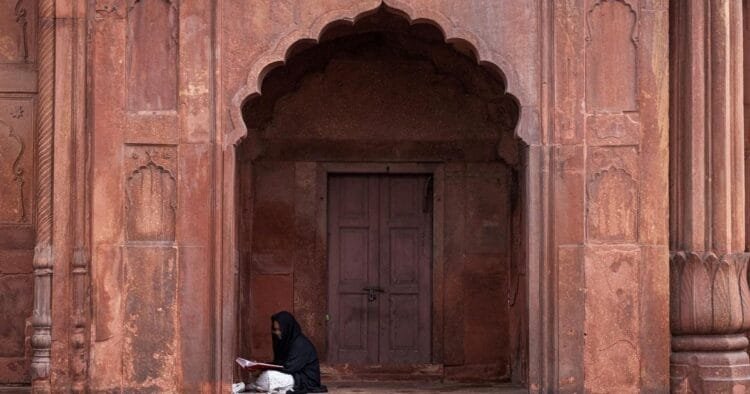Understanding the New Waqf Bill
The proposed New Waqf Bill emerges as a seminal piece of legislation aimed at reforming the management and administration of Waqfs in India. A Waqf, in Islamic jurisprudence, represents a religious or charitable endowment, typically involving the donation of cash, property, or other assets for communal benefit. These assets are usually designated for maintaining mosques, schools, hospitals, or other welfare activities, with the aim of serving the greater public good in perpetuity.
This Bill, drafted by the Ministry of Minority Affairs, introduces several pivotal changes aimed at enhancing transparency and accountability within Waqf boards. Key provisions include stricter governance mechanisms, mandatory digital documentation of Waqf properties, and enhanced financial audits. In particular, the Bill seeks to address past grievances about the alleged mismanagement and misappropriation of Waqf properties.
One of the significant changes proposed is the requirement for all Waqf Boards to establish robust grievance redressal systems. Additionally, the Bill mandates that all Waqf properties be registered digitally, ensuring a transparent and accessible database. Financial audits are to be conducted annually, giving stakeholders a clearer picture of the financial health and accountability of the Waqf institutions.
The Bill’s inception can be traced back to a series of high-profile controversies and legal cases that spotlighted irregularities in Waqf property management. Economic considerations, including the significant value of Waqf properties and their potential contributions to community welfare, have also played a crucial role in shaping the Bill. Politically, the Bill reflects the government’s broader agenda to institute reforms across various sectors, with a particular focus on minority welfare.
From a social standpoint, the aim is to strengthen the trust and confidence of the Muslim community in the governance of Waqf properties. By establishing sound administrative practices, the Bill strives to ensure that these assets are used effectively for their intended charitable purposes, thereby promoting social equity and community development.
Key Concerns Raised by Muslim Leaders
Muslim leaders have articulated a range of concerns regarding the newly proposed Waqf Bill, viewing it as potentially detrimental to the community’s rights and autonomy. One of the primary objections centers on the impact the Bill might have on religious freedom. Leaders argue that the bill’s provisions could unduly interfere with the practice and administration of Waqf properties, which are integral to Islamic charitable and religious activities.
A significant concern is the perceived threat to the traditional management and autonomy of Waqf institutions. Historically, these institutions have been self-governing, managed by trustees rooted in the local community. The new bill, according to critics, introduces a level of government oversight that could undermine this autonomy. By placing Waqf properties under stricter governmental control, there is apprehension that the essence of community-based management could be eroded, subsequently impacting the effectiveness and spiritual legitimacy of these institutions.
Moreover, property rights have emerged as a contentious issue. Leaders express fears that the bill might facilitate the expropriation or repurposing of Waqf properties, potentially resulting in the loss of valuable community assets. This concern is amplified by the belief that increased governmental control and a lack of proper safeguards could lead to cases of misuse or mismanagement of Waqf properties. Statements from organizations like the All India Muslim Personal Law Board (AIMPLB) emphasize the necessity of protecting these assets as they represent the collective heritage and charitable intentions of the Muslim community.
Transparency and accountability are also significant points of contention. While the bill’s proponents argue that enhanced oversight would ensure better management and transparency, Muslim leaders worry that it may instead lead to bureaucratic overreach and corruption. The fear is that an external governing body might not be as invested in the community’s specific needs and priorities, thereby weakening the trust and efficiency that local management traditionally offers. Dr. Zafarul Islam Khan, a noted Islamic scholar, has voiced such concerns, underscoring the potential risks associated with imbalanced governance structures.
Overall, the apprehensions revolve around the potential loss of community control, erosion of religious freedoms, and the possibility of administrative inefficiencies. These concerns reflect a broader resistance to any legislative changes perceived to threaten the longstanding traditions and rights associated with Waqf properties.
Community Impact and Reactions
The introduction of the new Waqf Bill has generated widespread reactions across different segments of the Muslim community. From religious scholars to community leaders and everyday citizens, a spectrum of sentiments has been voiced. Many religious scholars have expressed concerns that the bill undermines the autonomy of Waqf institutions, which traditionally play a crucial role in the social and economic support systems within the Muslim community. Theologians argue that the bill, in its current form, could potentially strip Waqf bodies of their independence, thereby diluting the religious and cultural essence of their operations.
Community leaders have echoed these sentiments, emphasizing that the changes proposed in the bill could negatively impact educational and healthcare facilities managed by Waqf boards. These institutions have been pivotal in providing affordable education and medical care to underprivileged sections of the society. As Amir Khan, a prominent community leader, stated, “The new Waqf Bill could destabilize the very foundation upon which our community welfare systems are built. It is imperative for the government to reconsider the provisions that threaten our self-reliant model.”
The general public has also shown considerable agitation towards the bill. Protests and petitions have surfaced in various cities, reflecting the unrest among the masses. Rallies organized to oppose the bill have seen significant participation from everyday citizens, showcasing a united stance against the perceived encroachment. A resident of Mumbai, Fatima Ali, articulated her frustration, saying, “Our Waqf institutions have always been a source of hope and support. This bill feels like an unjustified interference in our community affairs.”
Public forums and town hall meetings have been convened, where citizens can voice their concerns and seek clarity on the specifics of the bill. These forums have not only provided a platform for discussion but have also highlighted the collective anxiety about the future of Waqf-managed social services. The potential impact on social housing, scholarships, and community healthcare is driving the community to seek amendments to the bill, ensuring that their voices are heard in the legislative process.
The new Waqf Bill, in its current form, poses significant implications for the Muslim community and the management of Waqf properties. A possible short-term outcome could be the diminishing autonomy of Waqf institutions, potentially leading to administrative disruptions. Reforms that alter the control mechanisms of Waqf properties may cause resistance from those intended to benefit from the Waqf. Such friction could lead to legal challenges, with Muslim leaders likely engaging in judicial appeals to preserve traditional oversight mechanisms.
In the long run, unwavering implementation of the bill without accommodating key concerns might engender a sense of disenfranchisement within the Muslim community, possibly exacerbating social and political tensions. Conversely, should amendments integrate feedback from stakeholders, the reforms could harmonize Waqf management with contemporary governance standards while respecting religious sentiments. This could foster enhanced transparency and efficiency in Waqf operations, promoting trust among community members.
Addressing the legal and political channels, it is plausible that the matter may reach higher courts to seek interpretation about the bill’s alignment with constitutional provisions concerning religious freedom and minority rights. Politically, there is scope for leveraging platforms such as parliamentary committees to advocate for revisions. Inclusion of representatives from Waqf boards in the legislative process might yield a more nuanced and acceptable framework.
A potential pathway to resolution lies in constructive dialogue between the government and Muslim leaders. Establishing a consultative approach could illuminate shared objectives and reconcile divergent views, thus crafting a bill that achieves regulatory improvements without adjudicating undue control over religious properties. Solutions might include establishing a joint oversight council or ensuring community participation in decision-making processes.
The future of Waqf management, then, hinges on balancing regulatory imperatives with the preservation of community heritage. Reconciling these through a thoughtful legislative process could see Waqf institutions evolve into more robust entities that contribute substantially to socio-economic welfare. Ultimately, a collaborative approach stands the best chance of fostering equitable and sustainable reform, securing Waqf integrity while aligning with national interests.














